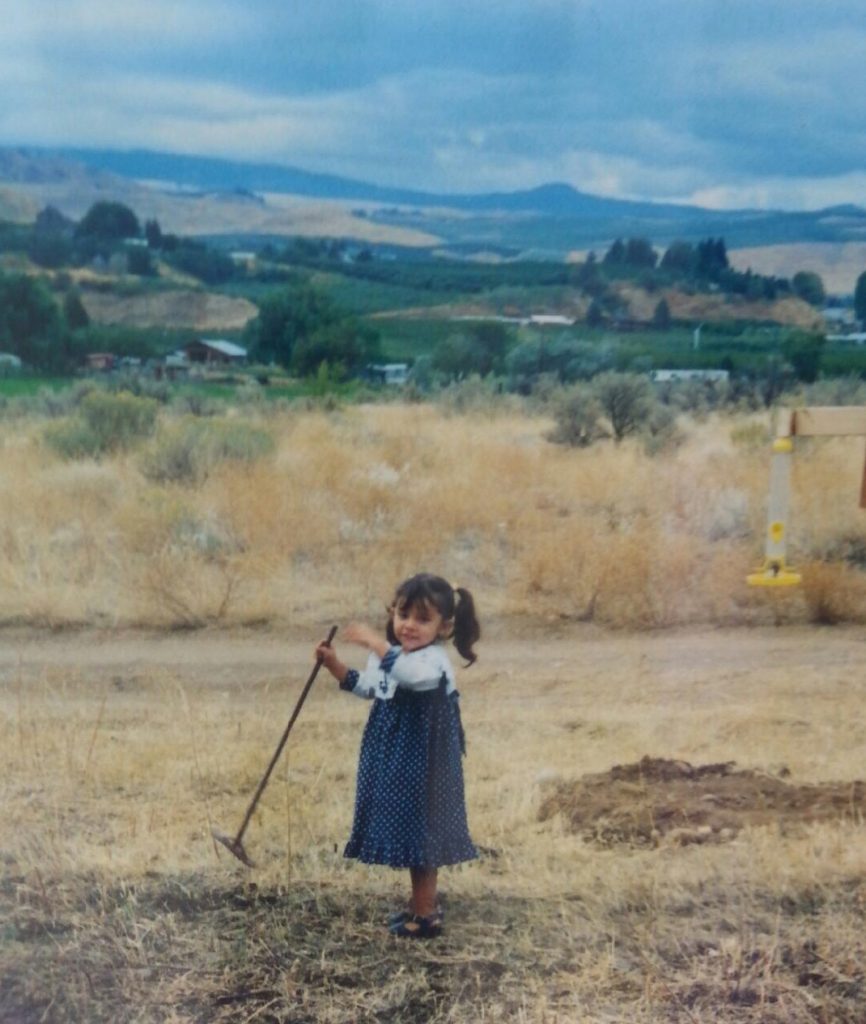Yarelly Gomez knows what hard work feels like.
“My parents would leave before 3 a.m. to pick asparagus, and they would pick cherries in the afternoon,” said the 20-year-old from Sunnyside, a town of 16,000 in the state of Washington. “Before we were old enough for school, my brothers and I would come with our parents to work, and we wouldn’t get back home until late in the afternoon.”
Yarelly helped the family make ends meet as soon as she was old enough to work. That included three summers picking up garbage from roadsides, in a corner of the state where temperatures routinely spike into the 90s.
“Our parents told us that if we didn’t go to college, these were the jobs we’d work for the rest of our lives,” Yarelly says. “They wanted to motivate us and it worked. I knew that I would do anything in my power to go to college.”
Today Yarelly is living her dreams, entering her junior year at the University of Washington. While working at the school’s IT Center during her freshman year, a friend noticed Yarelly’s curiosity about computers and recommended she pursue the subject. She took Introduction to Computer Science and was hooked. Today the same young woman who was working minimum wage jobs just a few years ago is majoring in computing and software engineering, poised to enter one of the most vibrant, high-paying sectors of our economy.

Yarelly’s story, and the stories of students like her, is what we hoped for when Microsoft made STEM (Science, Technology, Engineering and Math) education its signature hometown philanthropic focus nearly a decade ago. These success stories are why Microsoft today committed $10 million in The Washington State Opportunity Scholarship, which supports Yarelly and other low- and middle-income students pursuing STEM and health care degrees. The scholarship, which Boeing and Microsoft each helped found with $25 million each in 2011, matches public and private money to deserving scholars.
STEM fields, from computer science to bioengineering, drive our state’s economy, yet industries that need STEM professionals face worker shortages. The technology industry is a great example. According to the nonprofit Code.org, there will be one million more technology jobs nationally than qualified applicants by 2020. Our hospitals and other medical facilities are also short on trained professionals. We need students from all walks of life to pursue these rewarding and important fields. Yet many students are discouraged by the amount of extra work a STEM degree requires, making it hard to hold down a job at the same time. That’s why this scholarship is a lifeboat, both for students, our economy, and our health care facilities.
The great news is that Washington Opportunity Scholarship has had quite a year. A successful fundraising drive included an incredibly generous donation of $20 million from Seattle angel investor Gary Rubens. Then budget writers in the Legislature, led by state Sen. Andy Hill and state Rep. Ross Hunter, dedicated $41 million to match private contributions to the Washington State Opportunity Scholarship program, upholding the state’s commitment to match all private donations to the program, dollar for dollar. Today’s contributions from Microsoft and Steve and Connie Ballmer adds another $21 million to the program, bringing the total to $82 million for students wishing to pursue STEM degrees. These contributions, according to Washington State Opportunity Scholarship executive director Naria Santa Lucia, will allow the program to support 6,100 more students over the next five years.
“How many languages can I say thank you in?” Yarelly asks when talking about the support she’s received as a Washington Opportunity Scholar. “This scholarship program is the reason I’m in school right now – that it’s even a possibility to be in school.”
The $10 million from Microsoft builds on our other recent investments in education in Washington state, including $10 million toward the new UW computer science and engineering building and $40 million to found the Global Innovation Exchange, while working in concert with our broader YouthSpark initiative to create opportunities for young people. These contributions, inspired by the hopes and dreams of students, are an investment in the long-term economic success of our state.
“I hope to graduate with a computer science degree from one of the most amazing schools in the country, work for as a developer and be able to financially support my brother when he goes to college,” Yarelly says.
Let’s continue to support students in Washington state as they seek to become tomorrow’s innovators. Join us in supporting The Washington State Opportunity Scholarship, and its mission to make sure that all Washington students, regardless of economic status, can pursue a STEM or health care degree.

